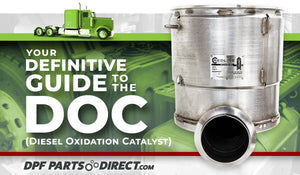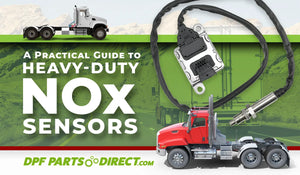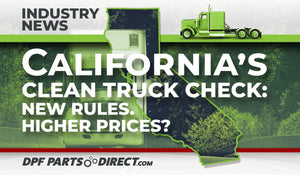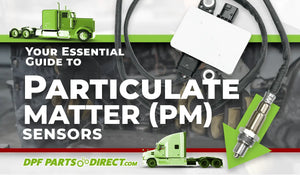California is rolling out a new program called Clean Truck Check, aiming to significantly cut down on diesel emissions from heavy-duty vehicles. This initiative, led by the California Air Resources Board (CARB), requires regular emissions testing and reporting for most large trucks, including those from out-of-state and even some motorhomes, if they operate in California. With roadside monitoring already underway since early 2023 and compliance reporting active since last fall, the program is now in full enforcement. This move has sparked a national conversation about its environmental benefits versus the potential economic ripple effects for truckers and consumers alike.
The program's reach extends beyond California's borders. Thanks to unique authority under the Clean Air Act, California can set stricter environmental standards than federal rules. Given its economic size and strategic location, handling nearly 40% of all U.S. imports, these state-level regulations often compel out-of-state businesses to comply to access the California market. This effectively creates a national standard without direct federal legislative oversight, leading to ongoing debates regarding interstate commerce and potential legal challenges. The broad applicability of the program means its impacts could affect the national supply chain.
Understanding the New Requirements
The Clean Truck Check program, also known as the Heavy-Duty Inspection and Maintenance (HD I/M) Program, applies to most diesel and alternative fuel vehicles over 14,000 pounds operating in California, including commercial trucks, buses, government vehicles, and California-registered motorhomes.
To comply, vehicle owners must register their vehicles in CARB's system, pay an annual $31 fee, and submit passing emissions tests by set deadlines. CARB uses roadside monitoring devices and license plate readers to spot high-emitting vehicles. If flagged, owners get a "Notice to Submit to Testing" (NST) and must pass an emissions test within 30 days, or face DMV registration holds and fines up to $10,000 per day.
Testing frequency varies: most vehicles need semi-annual tests. Newer vehicles (2013 and later) use On-Board Diagnostic (OBD) systems, while older engines require twice-yearly smoke opacity tests and visual inspections. By October 2027, OBD-equipped vehicles will need quarterly testing. California-registered motorhomes are tested annually or semi-annually. This complicated system means a significant administrative and operational burden for truck operators.
CARB's Vision: Cleaner Air, Healthier Communities
CARB's primary goal with the Clean Truck Check is to improve air quality and public health by reducing harmful diesel emissions, especially in communities heavily impacted by truck traffic. The agency estimates the program could prevent thousands of premature deaths and hospitalizations, projecting $75 billion in health benefits against an estimated program cost of $4 billion between 2023 and 2050.
Industry Concerns: Costs and Supply Chain Impacts
The trucking industry, often operating on thin margins, is concerned about the financial impact of the Clean Truck Check. Annual compliance costs per vehicle, including inspections, repairs, and testing, could range from $2,500 to $4,500, plus the $31 annual fee and lost revenue from vehicle downtime.
Industry executives and owner-operators warn these costs will likely be passed to consumers, potentially leading to higher prices for groceries, slower deliveries, and increased construction costs. With California's ports handling nearly 40% of U.S. imports, any disruptions could cause national supply chain bottlenecks and price hikes.
Small fleets and independent truckers are particularly vulnerable, as many may struggle with retrofit costs, inspection downtime, or consultant fees. Some owner-operators feel these rules could force them out of California, potentially leading to industry consolidation.
The Broader Economic Ripple Effect
These increased operating costs for trucks in California could ripple across the national economy, potentially fueling inflation. If passed through the supply chain, consumers nationwide might see higher prices for everything from food and fuel to household goods and even rent, as building materials become more expensive.
Given California's role as a major gateway for U.S. imports, any reduction in truck availability or delays due to compliance could lead to widespread logistical challenges, affecting the flow of goods across the entire country. This means a state-level environmental policy could become a national economic concern, impacting supply chain stability and consumer prices across the U.S.
Legal and Political Landscape
California's ability to set its own, often stricter, emissions standards under Clean Air Act waivers has long been debated. This authority was revoked by the Trump administration in 2019 but reinstated by the Biden administration in 2022, highlighting the ongoing tension between state and federal environmental policy. Legal challenges are now emerging, with some state attorneys general arguing the Clean Truck Check burdens interstate commerce and out-of-state businesses unconstitutionally.
Adding to the complexity, the Western States Trucking Association (WSTA) is challenging a "Clean Truck Partnership" between CARB and truck manufacturers. WSTA claims CARB improperly adopted a new regulation without a public process, while critics of WSTA's challenge say the partnership provides crucial certainty for businesses investing in electric trucks amidst shifting regulations.
Critics say California is using its large market size to effectively set national policy without congressional input. This conversion presents significant infrastructure challenges, as California struggles to build the necessary charging and hydrogen fueling stations to support widespread ZEV deployment.
Recent Political Developments
In what's viewed as a significant move, the Trump administration, on June 12, 2025, took action to roll back California's authority to set strict vehicle emissions standards. President Trump signed three Congressional Review Act (CRA) resolutions, effectively revoking waivers that had allowed California to implement its varied and ambitious rules. The administration stated these actions were aimed at ending what it called "costly and unattainable" regulations that imposed an “a nationwide electric vehicle mandate" and limited consumer choice, arguing that federal, not state, government should set vehicle emissions standards.
California, joined by ten other states, immediately pushed back, filing a lawsuit challenging the legality of using the CRA to overturn these waivers. They argue that Clean Air Act waivers are not "rules" subject to CRA review and that this federal action defies decades of precedent. This back-and-forth has created considerable uncertainty for the trucking industry and consumers.
Conclusion: Navigating the Road Ahead
California's Clean Truck Check program is a significant regulatory push to improve air quality and public health by targeting heavy-duty vehicle emissions. While CARB highlights substantial projected health benefits, the trucking industry voices concerns about increased compliance costs, especially for smaller operators, and the potential for these costs to raise consumer prices and disrupt national supply chains.
This program underscores California's influential role in environmental policy, often setting standards that impact industries nationwide. With ongoing legal challenges and complex regulatory agreements, the costs and outcomes of the Clean Truck Check remain to be seen. Let’s hope a commonsense solution can be attained.










Comments 0